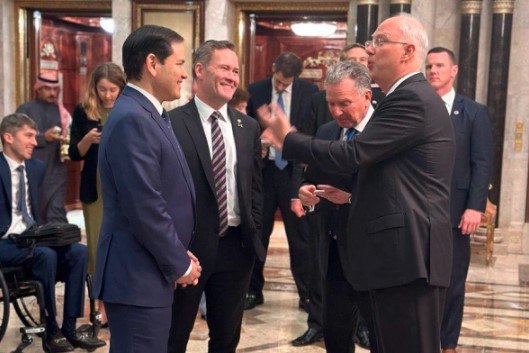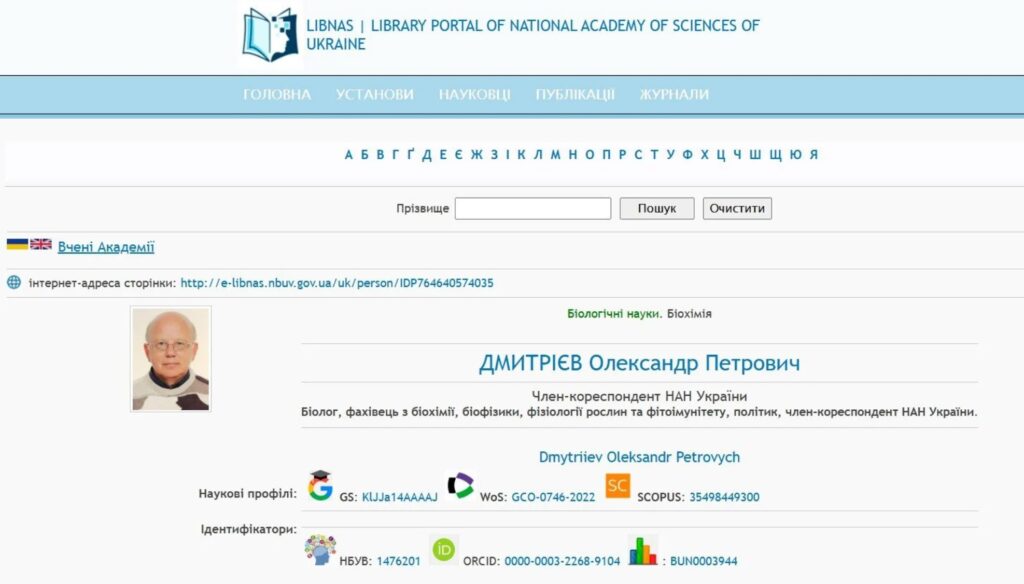This week, Putin’s envoy, Kirill Dmitriev, confirmed a new round of US-Russian talks on a Ukraine ceasefire, though the date and location remain undisclosed. Once virtually unknown, Dmitriev has emerged as Putin’s unexpected point man on Ukraine—his most critical geopolitical concern.
Fresh from meetings with Trump officials in Washington, which he described as "respectful," Dmitriev projects cautious optimism. Yet Russia's Foreign Ministry has conspicuously remained silent about his visit, while the Kremlin confirmed that no calls between Putin and Trump are scheduled.
Trump’s patience is wearing thin. The US President has directly criticized Putin and his negotiators for stalling, while Secretary of State Marco Rubio warned Moscow that "endless talks" won’t be tolerated.
Behind this diplomatic dance lies Kremlin intrigue. Sources report that Putin has split negotiations between two competing teams—Dmitriev's group and Foreign Minister Lavrov's faction—giving each contradictory directives. This internal rivalry intensifies as Trump pushes for a ceasefire deadline by Easter.
As tensions mount on both sides, Euromaidan Press has compiled everything known about these high-stakes negotiations.
Lavrov and Dmitriev clash in Riyadh
Kirill Dmitriev met in Washington with Trump's envoy Steve Witkoff last Wednesday - the first official Russian visit to the US since the invasion began.
CNN first reported on Dmitriev's mission, noting that US authorities suspended sanctions against him to enable the visit. Bloomberg previously described Dmitriev playing "a key role as an unofficial back-channel with Trump’s negotiators" and the architect of Russia's negotiation strategy with the US.
However, according to Russian exiled media Agentstvo (Agency), Putin has actually assigned two competing teams to negotiate with the United States.
The teams clashed during the 18 February talks in Riyadh. According to the Agentstvo source:
- Before the Riyadh talks, Putin told Foreign Minister Sergey Lavrov that the Russian delegation would consist of only two people—Lavrov himself and Presidential Assistant Yuri Ushakov.
- Dmitriev subsequently met with Putin and requested to participate, to which Putin reportedly agreed but did not inform Lavrov.
- When Lavrov saw three chairs for the Russian side in the negotiation room and learned the third was for Dmitriev, he reportedly moved the chair away, saying, "If he wants to participate, let Vladimir Vladimirovich [Putin] tell me himself."
- During one of the technical breaks, Lavrov left the room and, upon returning, found Dmitriev already seated at the negotiation table, according to the source
- "The Americans were also returning, and it would have been awkward for Lavrov to argue," the source recounted
- Dmitriev reportedly asked for "just 15 minutes" at the table.
Footage from Riyadh shows only Lavrov and Ushakov seated on the Russian side during the formal negotiations, with no third chair visible.
However, there is a photo showing Dmitriev speaking with American officials on the sidelines.

Agentstvo's source believes that Putin's communication style affects the negotiations.
"Everyone visits Putin individually, and he tells each person different things. This is one reason why no one can articulate Russia's demands in the negotiations," the source concludes.
This divided approach hinders Russia's ability to present a unified negotiating position in its diplomatic efforts with the United States.
Not just Witkoff, not just the US
While the competing teams create internal obstacles, Dmitriev's Washington visit involved more high-level American officials than initially reported. CNN's Alex Marquardt reported that US Secretary of State Marco Rubio met with Dmitriev in Washington. Previously, Dmitriev was only known to have met with Trump's envoy Steve Witkoff and Republican Senators Graham and Mullin.
Rubio shared his thoughts on the meeting: "None of it was threatening... It was more an explanation of 'this is our timeline' and at some point it will be clear whether you want peace or you don't want peace. And that time is coming. It's pretty short."
At the same time, Ukrainian President Volodymyr Zelenskyy indicated that Dmitriev had additional motives for his visit and wasn't limited to traveling to the US. He said Ukraine is closely monitoring these developments.
Zelenskyy suggested Russia's primary goal is recovering the $300 billion frozen after its invasion, with European sanctions being particularly painful. He believes strong sanctions will compel Russia to halt the war.
"We know they want to offer countries to purchase high-tech items with this money. If leaders help them use these funds... This involves aviation manufacturing with our Western partners," said Zelenskyy.
Two teams, two narratives
As Lavrov and Dmitriev battle for negotiating authority internally, the Kremlin has simultaneously deployed a sophisticated media strategy to shape public perception of these talks. This two-track approach mirrors Putin's divided negotiation teams – presenting different messages to different audiences.
While Dmitriev was meeting with American officials in Washington, Russian state media carefully framed his mission to serve the Kremlin's preferred narrative. The primary message, emphasized by propagandist Olga Skabeeva on Russia 1's "60 Minutes," inverted reality: "Lifting sanctions on Moscow is not something the Russians want, but American businesses need. They lost $300 billion and have long been eager to return."
This messaging directly contradicts what Lavrov's team has demanded in formal negotiations – namely, that lifting sanctions on Rosselkhozbank is a condition for any Black Sea ceasefire agreement. The contradictory public and private positions reflect the same divided approach evident in the Riyadh incident, where Putin assigned competing negotiators without clear communication between them.
Trending Now
After his Washington trip, Dmitriev made statements to Russian media and was interviewed by CNN, Fox News, and Newsmax. To CNN, he insisted Russia doesn't seek sanctions relief, claiming "many Russians believe" sanctions have benefited Russia: "The Russian economy is showing positive results, and we are not asking for the removal of sanctions."
Dmitriev also repeated his claim that American businesses have lost $324 billion by exiting the Russian market.
Both assertions are false. The Kremlin has officially stated that lifting sanctions on Rosselkhozbank and other Russian companies is a condition for a Black Sea ceasefire. Regarding the financial impact, Reuters estimates US companies' actual losses at $107 billion in write-offs and missed opportunities by May 2024 - far below Dmitriev's figure.
Talks pause as US awaits Putin’s response
Dmitriev's US negotiations ended last Thursday, with Bloomberg reporting that American officials await his report to Putin before taking further steps.
Trump's advisors have reportedly cautioned him against calling Putin until the Russian president agrees to a ceasefire. However, Politico reports that European officials expect a call between the leaders soon. When questioned about potential talks, Kremlin spokesperson Peskov stated: "There is nothing in the schedule for now."
Trump has recently expressed increasing dissatisfaction with Russia's approach. He reportedly became 'pissed off' when Putin questioned Zelenskyy's authority and has threatened sanctions on Russian oil if a ceasefire isn't reached within a month. Reuters reported that both the White House and State Department acknowledge that Putin is actively resisting a peace deal.
According to Bloomberg sources in Moscow, Russia is betting on Trump securing a peace deal favorable to their interests, though the Kremlin remains prepared to continue fighting if negotiations fail. These sources indicate that Russian officials aren't overly concerned about Trump's threats of secondary oil sanctions. Putin apparently understands that Trump is offering him a chance to end the war on the most favorable terms possible, and wants to continue diplomacy despite the public tensions.
American dream, Russian reality
Until 2025, Kirill Dmitriev operated largely in the shadows despite now emerging as arguably Russia's second most powerful figure after Putin himself.
Born in Kyiv in 1975 to Ukrainian academic biologist Olexander Dmitriev, Kirill left for the US at 14 through the People's Diplomacy program. He graduated from Stanford, worked at Goldman Sachs and McKinsey, and earned a Harvard MBA.

While Western media often portrays him simply as an elite-educated finance professional, this polished image contrasts sharply with his controversial business record.
Dmitriev moved to Moscow in 2000 as deputy general director at IBS. By 2002, he became investment director at Delta Private Equity, a division of the Clinton-era Russia-USA fund, and chaired the Russian Private Equity and Venture Capital Association. The Insider claims Russian intelligence recruited him during this period, citing his purchase of a Land Rover registered under intelligence credentials.
In 2007, Dmitriev returned to Ukraine to head Icon Private Equity under businessman Viktor Pinchuk. His most notorious venture was the Olympic Park cottage community near Kyiv, where developers allegedly collected $63 million from ordinary Ukrainians before abandoning construction after completing only 100 of 900 planned houses—effectively defrauding investors of their savings.
Following this controversy, Dmitriev returned to Moscow in 2011 to lead the Russian Direct Investment Fund, a Putin-created entity with $10 billion in capital that primarily funds industrial giants owned by Kremlin-connected oligarchs.
What explains Dmitriev's remarkable influence within the Kremlin? According to Russian media, one key factor may be his close personal connections to Putin’s inner circle.
“Dmitriev's rise to prominence came after his marriage to Natalia Popova, a close friend and business partner of Putin’s younger daughter, Katerina Tikhonova,” wrote The Insider.

Yet, despite the skepticism surrounding his background, Dmitriev's Washington visit yielded an unexpected breakthrough: his statement that Russia is now open to Western security guarantees for Ukraine "in some form." This marks a significant shift from Moscow’s long-held stance, as Lavrov himself had categorically rejected such guarantees in the past.
By keeping Dmitriev and Lavrov at odds, Putin creates plausible deniability for any proposal. If Dmitriev’s offer is later deemed problematic, the Kremlin can distance itself, claiming it exceeded his authority. On the other hand, if the offer advances negotiations, Putin can adopt it as Russia’s official position. Whether this represents genuine flexibility or yet another calculated delay tactic remains the billion-dollar question as Trump's Easter deadline looms.

